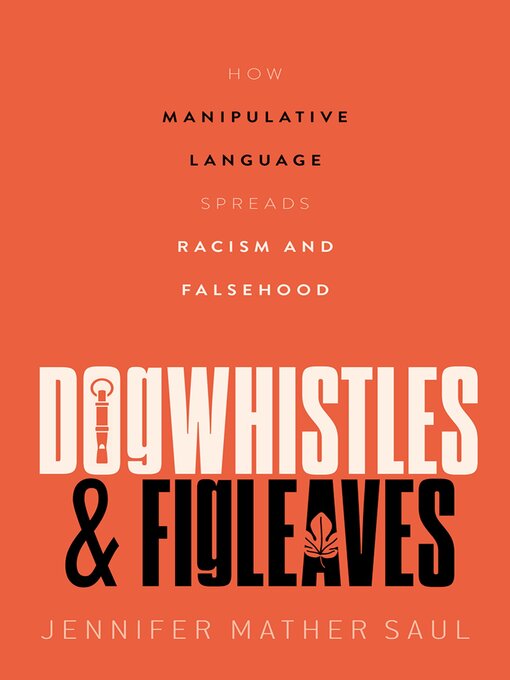Dogwhistles and Figleaves
How Manipulative Language Spreads Racism and Falsehood
-
Creators
-
Publisher
-
Release date
January 9, 2024 -
Formats
-
Kindle Book
-
OverDrive Read
- ISBN: 9780192699770
-
EPUB ebook
- ISBN: 9780192699770
- File size: 497 KB
-
-
Languages
- English
-
Reviews
-
Publisher's Weekly
November 20, 2023
Saul (Lying, Misleading, and What Is Said), a professor of the social and political philosophy of language at the University of Waterloo, analyzes in this cogent study two linguistic devices that perpetuate harm in political discourse, with a particular focus on Donald Trump’s presidency. According to Saul, so-called dogwhistles fall into two categories. “Overt code” dogwhistles are “designed to be understood by one group (those who don’t accept norms against racism) and not recognized by others,” and include the use of George Soros’s name to connote antisemitic conspiracy theories. On the other hand, “covert effect” dogwhistles are meant to “act on some of the people who accept the antiracism norm without their awareness.” Examples include the phrase “inner city,” whose negative connotations are often subconsciously associated with Black people. Elsewhere, Saul turns to “figleaves,” which provide “cover for what might otherwise be easily recognized as racist,”citing as an example the qualifier, “I’m not racist but...,” which is often followed by a sentiment that is just that. (Subtler and perhaps even more manipulative, according to Saul, is Trump’s favored figleaf, “a lot of people are saying,” which is often used to present a controversial idea without visibly agreeing with it.) While some readers may be disappointed by the relative paucity of solutions provided—education about how the linguistic devices work and cause harm is chief among them—Saul skillfully illuminates the way language is used to amplify and normalize racism, suggesting in the process that racist intent is less important than effect. It’s a scrupulous look at a damaging linguistic phenomenon that often hides in plain sight.
-
Loading
Why is availability limited?
×Availability can change throughout the month based on the library's budget. You can still place a hold on the title, and your hold will be automatically filled as soon as the title is available again.
The Kindle Book format for this title is not supported on:
×Read-along ebook
×The OverDrive Read format of this ebook has professional narration that plays while you read in your browser. Learn more here.

